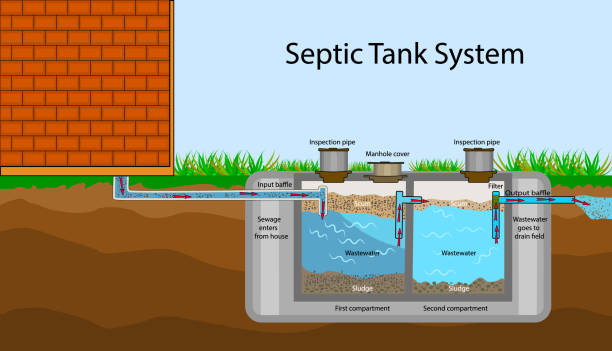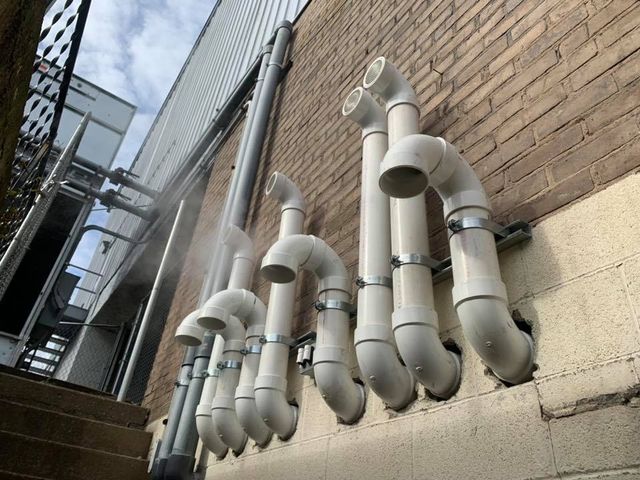A Detailed Look at Your House's Plumbing System Anatomy
A Detailed Look at Your House's Plumbing System Anatomy
Blog Article
They are making several good annotation relating to Exploring Your Homes Plumbing Anatomy as a whole in the content in the next paragraphs.

Recognizing just how your home's plumbing system works is vital for each property owner. From delivering clean water for alcohol consumption, cooking, and bathing to safely removing wastewater, a well-maintained plumbing system is crucial for your family's wellness and convenience. In this detailed overview, we'll check out the elaborate network that makes up your home's pipes and offer suggestions on maintenance, upgrades, and managing common problems.
Introduction
Your home's plumbing system is greater than simply a network of pipes; it's a complex system that ensures you have accessibility to clean water and efficient wastewater elimination. Knowing its components and how they collaborate can assist you stop expensive repair services and make sure whatever runs efficiently.
Fundamental Parts of a Plumbing System
Pipes and Tubing
At the heart of your plumbing system are the pipes and tubes that bring water throughout your home. These can be made from different products such as copper, PVC, or PEX, each with its advantages in terms of durability and cost-effectiveness.
Fixtures: Sinks, Toilets, Showers, and so on.
Components like sinks, commodes, showers, and tubs are where water is utilized in your home. Understanding exactly how these fixtures link to the pipes system helps in detecting issues and intending upgrades.
Valves and Shut-off Factors
Shutoffs control the circulation of water in your plumbing system. Shut-off shutoffs are important throughout emergency situations or when you need to make repair services, allowing you to separate parts of the system without interfering with water flow to the whole residence.
Supply Of Water System
Key Water Line
The primary water line attaches your home to the local water supply or a personal well. It's where water enters your home and is distributed to different components.
Water Meter and Pressure Regulatory Authority
The water meter steps your water use, while a stress regulator makes sure that water flows at a secure pressure throughout your home's plumbing system, protecting against damages to pipes and components.
Cold Water vs. Warm water Lines
Comprehending the difference between cold water lines, which provide water directly from the major, and hot water lines, which lug heated water from the hot water heater, aids in repairing and planning for upgrades.
Drain System
Drain Pipes Pipeline and Traps
Drain pipelines lug wastewater away from sinks, showers, and bathrooms to the sewer or sewage-disposal tank. Catches prevent drain gases from entering your home and additionally trap debris that can trigger obstructions.
Air flow Pipelines
Ventilation pipes enable air right into the water drainage system, preventing suction that might slow down water drainage and cause traps to vacant. Proper ventilation is necessary for preserving the honesty of your pipes system.
Importance of Appropriate Drain
Making sure correct drainage prevents backups and water damage. Routinely cleaning drains and maintaining catches can prevent costly repair work and prolong the life of your plumbing system.
Water Heater
Kinds Of Hot Water Heater
Hot water heater can be tankless or typical tank-style. Tankless heating systems warmth water as needed, while containers save warmed water for instant use.
Upgrading Your Plumbing System
Factors for Upgrading
Upgrading to water-efficient components or changing old pipelines can enhance water quality, reduce water bills, and enhance the value of your home.
Modern Pipes Technologies and Their Advantages
Discover modern technologies like clever leakage detectors, water-saving commodes, and energy-efficient hot water heater that can conserve money and decrease environmental impact.
Cost Considerations and ROI
Determine the in advance costs versus lasting savings when considering pipes upgrades. Several upgrades spend for themselves with reduced utility costs and fewer fixings.
Exactly How Water Heaters Connect to the Pipes System
Understanding exactly how hot water heater link to both the cold water supply and hot water distribution lines aids in diagnosing concerns like insufficient warm water or leakages.
Maintenance Tips for Water Heaters
On a regular basis purging your hot water heater to remove debris, checking the temperature setups, and evaluating for leaks can expand its life expectancy and boost energy effectiveness.
Typical Pipes Concerns
Leakages and Their Reasons
Leaks can happen due to maturing pipelines, loose fittings, or high water pressure. Resolving leakages without delay avoids water damages and mold and mildew development.
Obstructions and Clogs
Clogs in drains pipes and commodes are commonly triggered by purging non-flushable products or a buildup of grease and hair. Using drainpipe screens and being mindful of what goes down your drains can avoid obstructions.
Indicators of Plumbing Problems to Look For
Low water pressure, slow-moving drains, foul odors, or unusually high water bills are signs of potential plumbing troubles that should be addressed immediately.
Pipes Upkeep Tips
Regular Evaluations and Checks
Schedule yearly pipes examinations to capture concerns early. Search for indications of leaks, deterioration, or mineral build-up in taps and showerheads.
DIY Maintenance Tasks
Basic tasks like cleaning tap aerators, looking for commode leakages utilizing dye tablets, or insulating revealed pipes in cold climates can stop significant pipes problems.
When to Call a Specialist Plumbing
Know when a pipes problem needs professional experience. Trying complex repairs without correct understanding can cause more damages and greater repair work expenses.
Tips for Reducing Water Use
Basic behaviors like taking care of leaks without delay, taking much shorter showers, and running full loads of laundry and dishes can conserve water and lower your energy costs.
Eco-Friendly Pipes Options
Consider lasting pipes materials like bamboo for flooring, which is durable and green, or recycled glass for counter tops.
Emergency situation Readiness
Actions to Take During a Pipes Emergency situation
Know where your shut-off shutoffs lie and exactly how to switch off the water in case of a ruptured pipe or significant leakage.
Importance of Having Emergency Situation Get In Touches With Handy
Maintain get in touch with info for local plumbing professionals or emergency solutions conveniently available for fast action throughout a plumbing crisis.
Ecological Effect and Conservation
Water-Saving Components and Home Appliances
Setting up low-flow taps, showerheads, and bathrooms can significantly lower water usage without sacrificing efficiency.
DIY Emergency Fixes (When Suitable).
Short-term solutions like utilizing duct tape to spot a leaking pipeline or placing a container under a leaking faucet can reduce damages up until a professional plumbing arrives.
Verdict.
Recognizing the composition of your home's pipes system equips you to preserve it effectively, conserving time and money on repairs. By adhering to routine upkeep routines and remaining informed concerning contemporary pipes innovations, you can ensure your pipes system runs effectively for many years to find.
HOW YOUR PLUMBING SYSTEM WORKS
Which Pipes Do What?
Blue lines = fresh water supply entering the building Red lines = hot water supply entering the building Grey lines = pipes carrying waste away from the building and venting pipes carrying gases away from the building (through the roof) YOUR MAIN PLUMBING SYSTEMS
There are two main plumbing systems that support your home s basic plumbing needs one that brings clean water into your home, and one that sends dirty water away from your home. Connected to the toilet, bath, shower, and other faucets in your home, these two systems keep your water flowing in the right directions.
ACCESSING FRESH WATER
Fresh and clean water is brought into your home through the main water supply line . Filtered through one pipe, this water is pressured to flow into the various fixtures in your home at any given time.
This water can be sourced from a well located on your property, a pond or river (mostly cottages), or, as in most cases, from the city s municipal water treatment centre. However, it is important to note that water that is untreated, such as the water siphoned from ponds or rivers, may not be safe to drink. Personal water supplies always need to be treated for hardness and contaminants before consumed.
MUNICIPAL WATER SUPPLIES
Improve taste and odour Remove sediment Eliminate hardness Reduce chlorine COLD WATER SUPPLY VS. HOT WATER SUPPLY
Cold water flows into your home or building through the service line, which then distributes hot or cold water to your fixtures. This line is most commonly run through a central column that runs floor to floor. Hot water runs in short and straight pipes as the longer the pipeline, the more heat that will be lost in the transfer. Having shorter pipes also allows residents to access hot water more quickly.
WASTE WATER SYSTEM
Your wastewater system is divided into two parts pipes that send wastewater away from your home and venting pipes that send sewer gas away from your home. Sewage water travels through pipes that flush the water and waste towards local sewers that are operated and managed by your city or town. Most sewer systems rely on gravity to move the wastewater to where it needs to go.
The further away from your toilet or sink, the larger wastewater pipes become. This allows for waste to be disposed of from various parts of your home or business at once without pipe blockages. The angle and flow of these pipes are also essential for keeping your waste pipes clear of build up.
https://harrisplumbing.ca/how-your-home-plumbing-system-works/

Hopefully you enjoyed reading our topic about . Thanks a lot for taking the time to read our blog. Are you aware of another person who is in the market for the niche? Take a moment to promote it. We enjoy your readership.
Book A Service Call Report this page